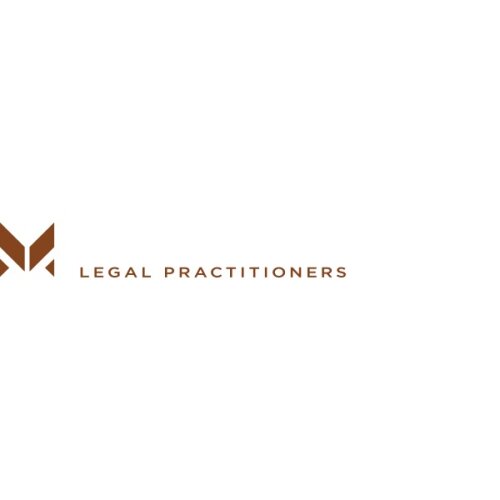Best Employer Lawyers in Zambia
Share your needs with us, get contacted by law firms.
Free. Takes 2 min.
Or refine your search by selecting a city:
List of the best lawyers in Zambia
About Employer Law in Zambia
Employer law in Zambia encompasses all legal aspects related to the relationship between employers and employees. This includes employment contracts, rights and duties of employers and employees, workplace safety, remuneration, and termination of employment. The Zambian legal framework is primarily guided by the Employment Code Act, which provides comprehensive rules and regulations to ensure fair labor standards and promote healthy working environments. Additionally, employer law is influenced by various labor statutes, international labor conventions, and collective agreements.
Why You May Need a Lawyer
There are several scenarios where seeking legal advice concerning employer issues in Zambia may be necessary. Common situations include disputes over employment contracts, wrongful termination, workplace discrimination or harassment, issues related to employee benefits, health and safety compliance disputes, and navigating the complexities of collective bargaining agreements. Having a lawyer can also be beneficial when dealing with regulatory bodies, negotiating settlements, or drafting clear and legally sound employment contracts.
Local Laws Overview
The key aspects of local laws relevant to employer regulations in Zambia include:
- Employment Code Act: The primary statute governing employer and employee relations, covering aspects such as minimum wage, leaves, and conditions for terminating employment.
- Occupational Health and Safety Act: This law requires employers to provide a safe working environment and adhere to prescribed safety standards.
- Industrial and Labor Relations Act: This governs industrial relations, collective bargaining, and labor disputes.
- The Minimum Wages and Conditions of Employment Act: Sets the minimum wage standards and employment conditions.
- Workmen's Compensation Act: Provides for compensation to employees injured or incapacitated on duty.
Frequently Asked Questions
What is the minimum wage in Zambia?
The minimum wage in Zambia is subject to periodic changes and can vary by industry and job classification. It is crucial to confirm the current rates with the Ministry of Labor or consult a legal expert.
Are employment contracts mandatory in Zambia?
Yes, employment contracts are mandatory and must be documented in writing to ensure clarity and protection of both parties' rights.
What are the legal requirements for employee termination?
Termination must comply with the Employment Code Act, which requires valid reasons and fair procedures. Failure to adhere may result in claims of wrongful dismissal.
How are disputes between employers and employees resolved?
Disputes can be resolved through mediation, arbitration, or through the courts. The Industrial Relations Court typically handles such cases.
What are the leave entitlements for employees?
Employees are entitled to various types of leave, including annual leave, maternity leave, and sick leave, as stipulated by the Employment Code Act.
Is redundancy allowed, and what are the requirements?
Redundancy is permitted under specific conditions and requires complying with procedural obligations such as consultation, notice periods, and severance payments.
How can discrimination in the workplace be addressed legally?
Discrimination cases can be taken to the Industrial Relations Court, and legal remedies may involve compensation or reinstatement.
What safety standards must employers adhere to?
Employers must comply with standards set by the Occupational Health and Safety Act, including providing necessary training and protective equipment.
Are employers required to contribute to social security schemes?
Yes, both employers and employees are required to contribute to the National Pension Scheme Authority (NAPSA).
How can one enforce an employee's rights?
An employee can enforce rights by filing a complaint with the Ministry of Labor or seeking legal representation to pursue the matter through appropriate legal channels.
Additional Resources
Individuals seeking assistance in employer-related legal matters in Zambia can consult the following resources:
- Ministry of Labor and Social Security: Provides guidance and oversees labor laws and regulations.
- Zambia Federation of Employers: Offers resources for employers on best practices and compliance.
- Legal Aid Board: Offers legal assistance to individuals who cannot afford private legal representation.
- National Pension Scheme Authority (NAPSA): Manages social security matters including pensions and benefits.
Next Steps
If you find yourself in need of legal assistance regarding employer matters in Zambia, consider the following steps:
- Identify the specific issue or conflict you are facing and gather all relevant documentation like contracts, correspondence, and employment records.
- Consult a qualified lawyer specializing in labor law for a preliminary discussion and assessment of your situation.
- If necessary, escalate your matter to relevant governmental bodies such as the Ministry of Labor for mediation or advice.
- If legal action is required, your lawyer will guide you through the process of filing a claim or representing your interests in negotiations or court proceedings.
- Stay informed about your rights and responsibilities under Zambian employer laws to prevent future disputes and ensure compliance.
Lawzana helps you find the best lawyers and law firms in Zambia through a curated and pre-screened list of qualified legal professionals. Our platform offers rankings and detailed profiles of attorneys and law firms, allowing you to compare based on practice areas, including Employer, experience, and client feedback.
Each profile includes a description of the firm's areas of practice, client reviews, team members and partners, year of establishment, spoken languages, office locations, contact information, social media presence, and any published articles or resources. Most firms on our platform speak English and are experienced in both local and international legal matters.
Get a quote from top-rated law firms in Zambia — quickly, securely, and without unnecessary hassle.
Disclaimer:
The information provided on this page is for general informational purposes only and does not constitute legal advice. While we strive to ensure the accuracy and relevance of the content, legal information may change over time, and interpretations of the law can vary. You should always consult with a qualified legal professional for advice specific to your situation.
We disclaim all liability for actions taken or not taken based on the content of this page. If you believe any information is incorrect or outdated, please contact us, and we will review and update it where appropriate.
Browse employer law firms by city in Zambia
Refine your search by selecting a city.
















